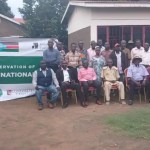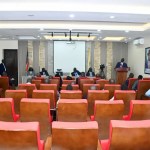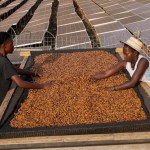(JUBA) – The Central Bank of South Sudan has published the official list of tariffs on salary processing for the year 2025, revealing a wide range of charges across commercial banks and fintech institutions operating in the country.
The updated figures aim to standardise expectations for employers and employees while highlighting the growing role of mobile money services in financial transactions.
According to the document issued on July 3, 2025, by the Directorate of Supervision and Financial Stability, the tariffs vary significantly depending on the bank or service provider.
While some institutions charge a flat rate, others apply a percentage or offer services free of charge. The aim, according to the Bank, is to improve financial transparency and ensure that users of banking services are informed in advance.
Among the banks that have set flat charges are Horizon Bank and Equity Bank South Sudan Limited, each charging 500 South Sudanese Pounds (SSP), which is approximately $0.11 at the current exchange rate of 4,600 SSP to 1 USD.
Eden Commercial Bank has set the highest flat rate at 1,500 SSP (about $0.33), while Nile Commercial Bank charges 1,000 SSP ($0.22). Alpha Commercial Bank applies a percentage rate of 0.3% on salary amounts above 50,000 SSP, which equates to roughly $10.87. This means an employee earning 100,000 SSP (around $21.74) would be charged 300 SSP (approximately $0.07).
Phoenix Commercial Bank is among the few offering salary processing free of charge, a move that could attract more salary account holders, especially in urban areas such as Juba, Wau and Malakal.
MTN Fintech Service (MoMo), a mobile money provider, has opted for a flexible percentage model, charging 2% of the amount being withdrawn. For instance, withdrawing 50,000 SSP ($10.87) would incur a fee of 1,000 SSP ($0.22). While this may seem higher than some bank charges, the convenience and accessibility of mobile services remain an attractive option, particularly in remote or conflict affected areas.
The National Investment and Development Bank has not published a standard tariff, instead marked as “N/A” in the official listing.
The directive reflects a broader trend in South Sudan’s banking sector toward clearer financial communication and regulation, especially as the country continues to rebuild its financial infrastructure.
The Bank of South Sudan has encouraged citizens and businesses to consult the full list of tariffs through official platforms such as www.boss.gov.ss.
Most salary earners in South Sudan, especially civil servants and NGO workers, rely heavily on timely and cost effective salary disbursements In a country where cash liquidity and trust in banking institutions remain fragile after years of instability.


















































